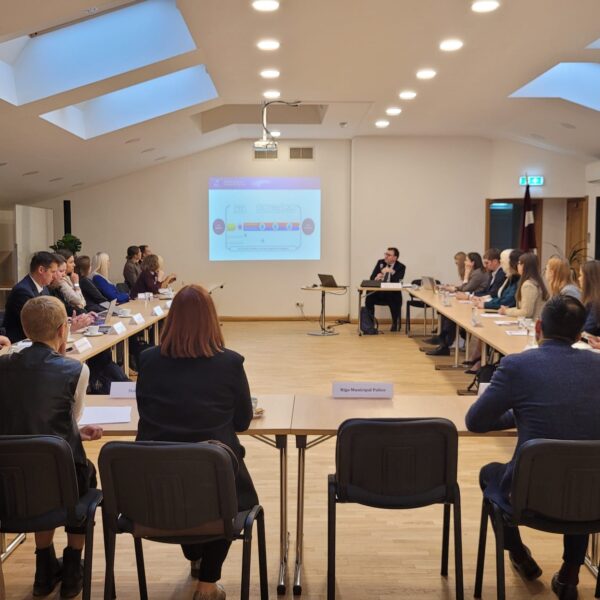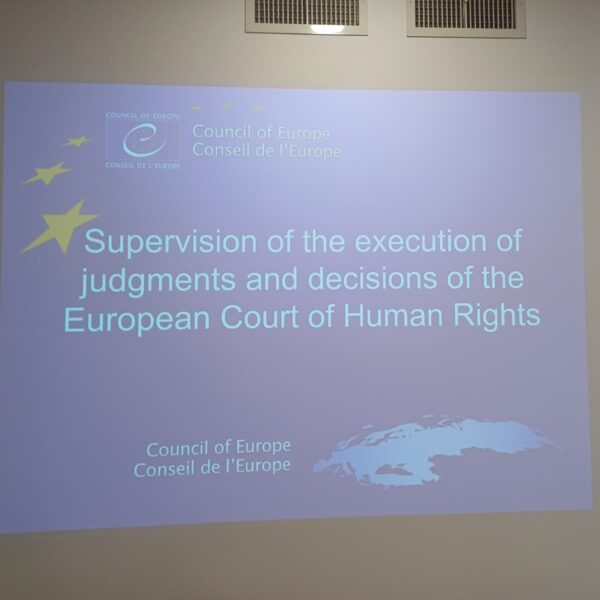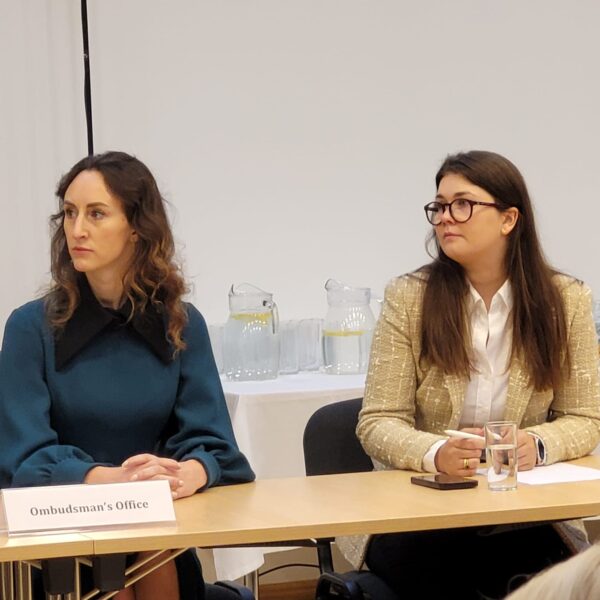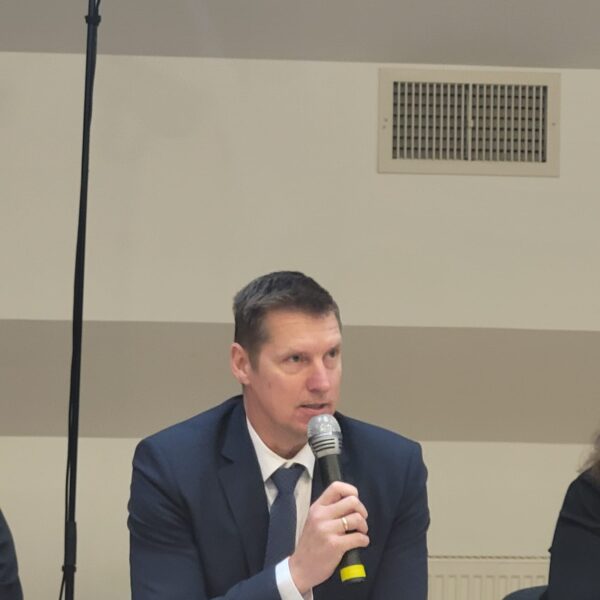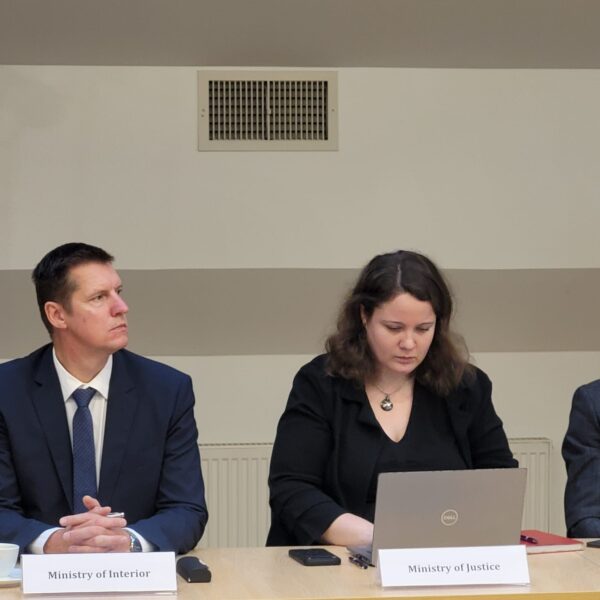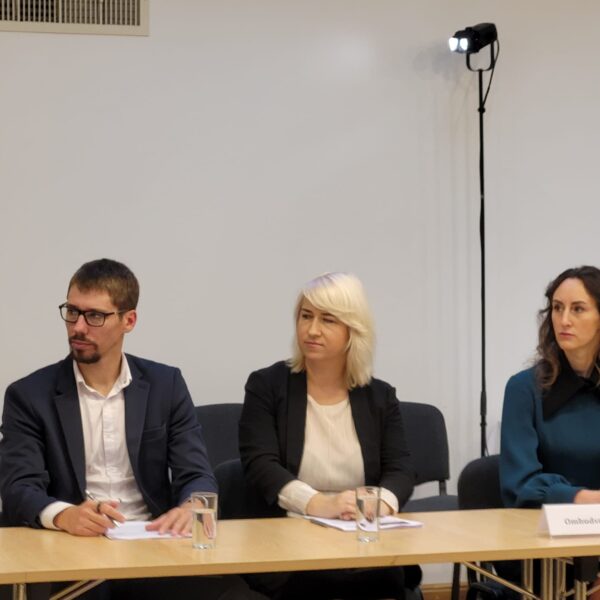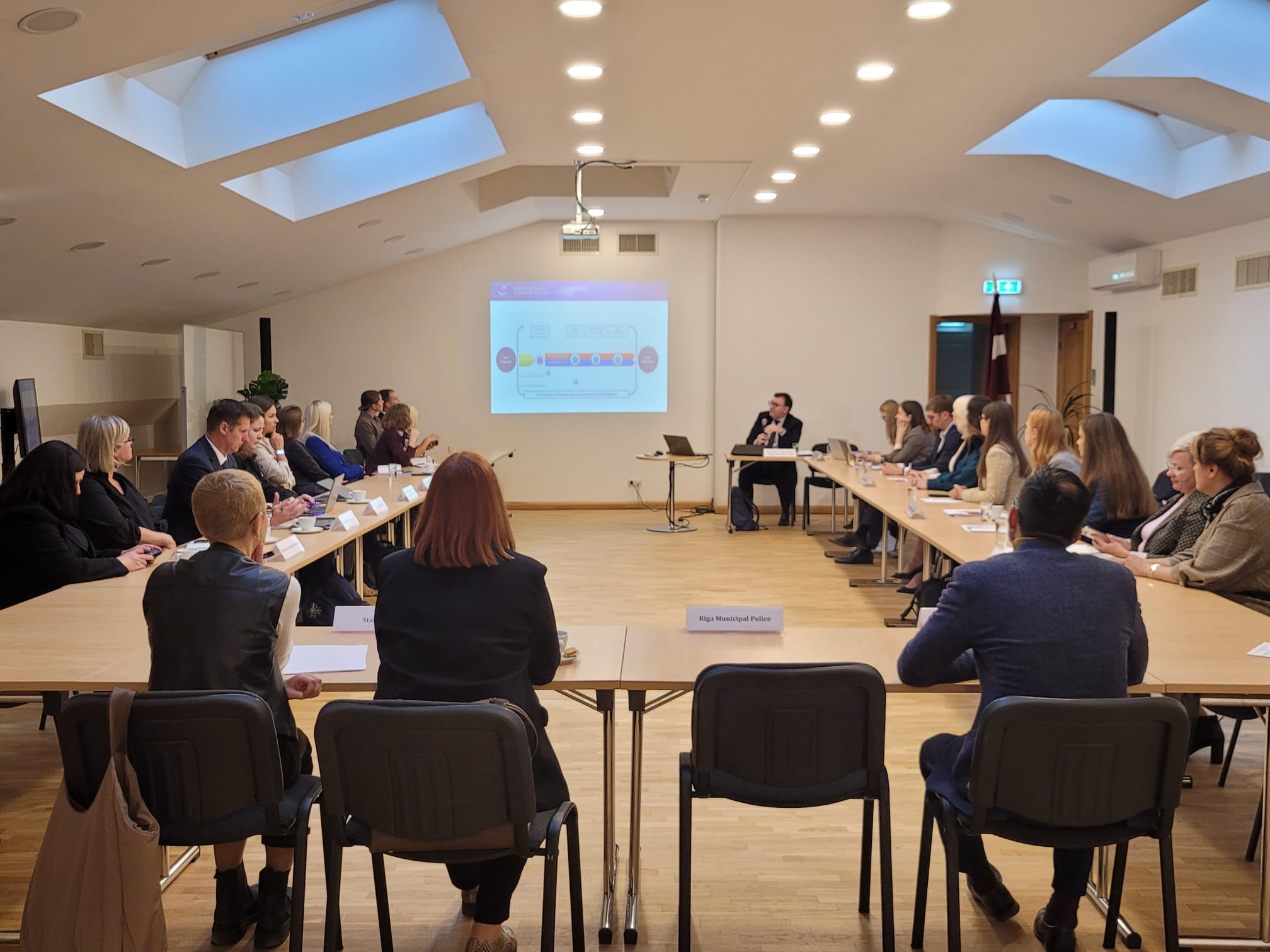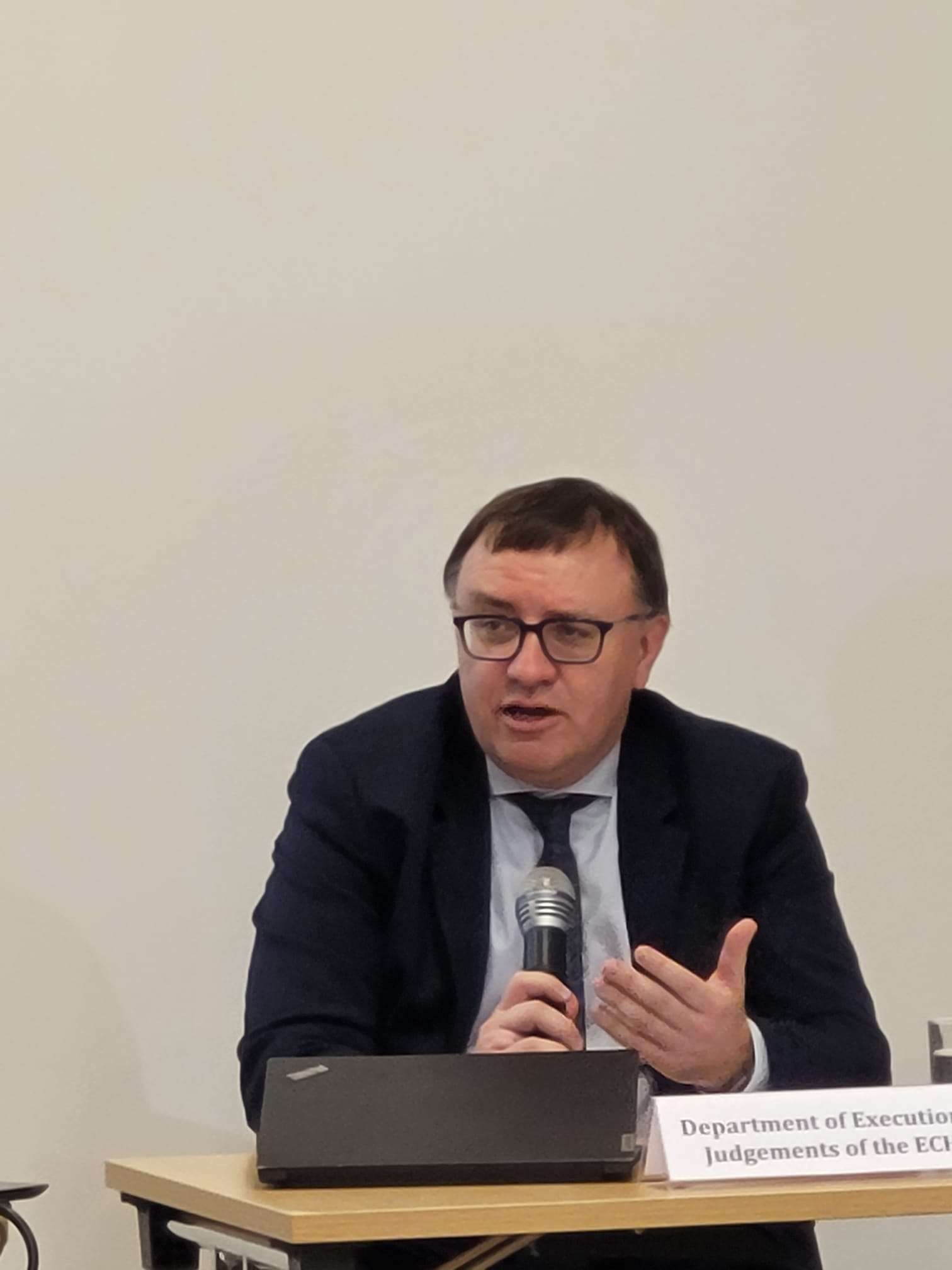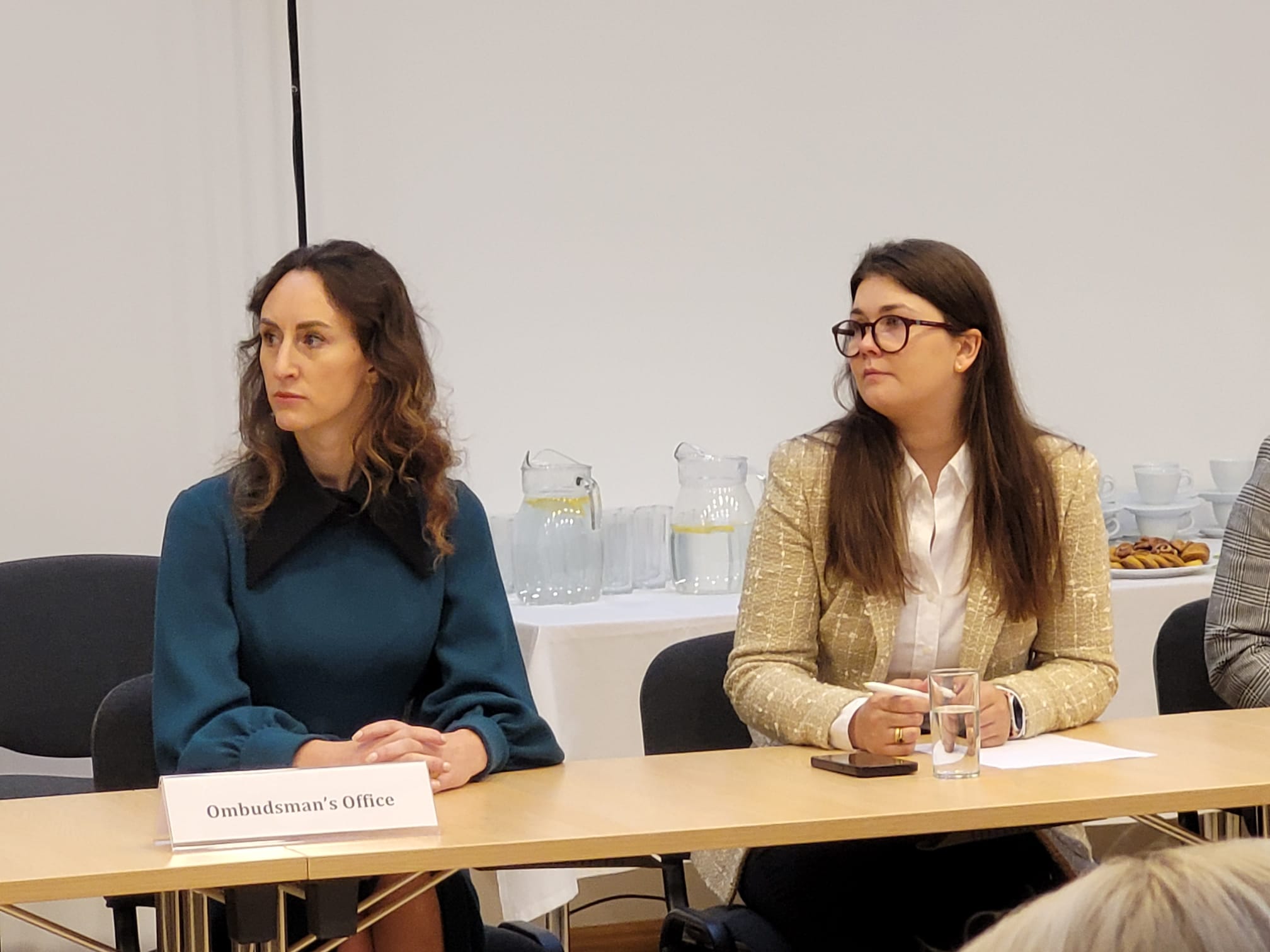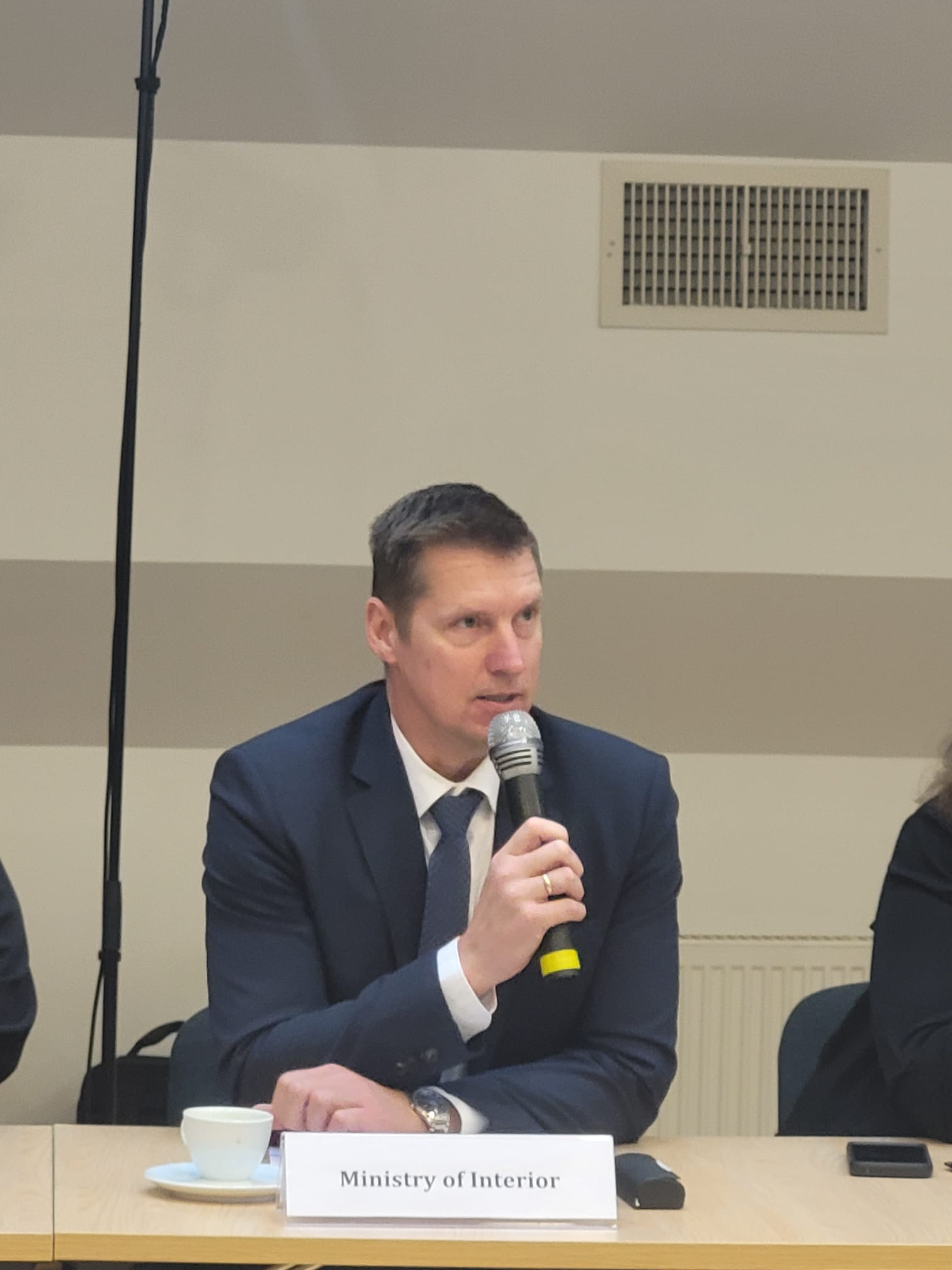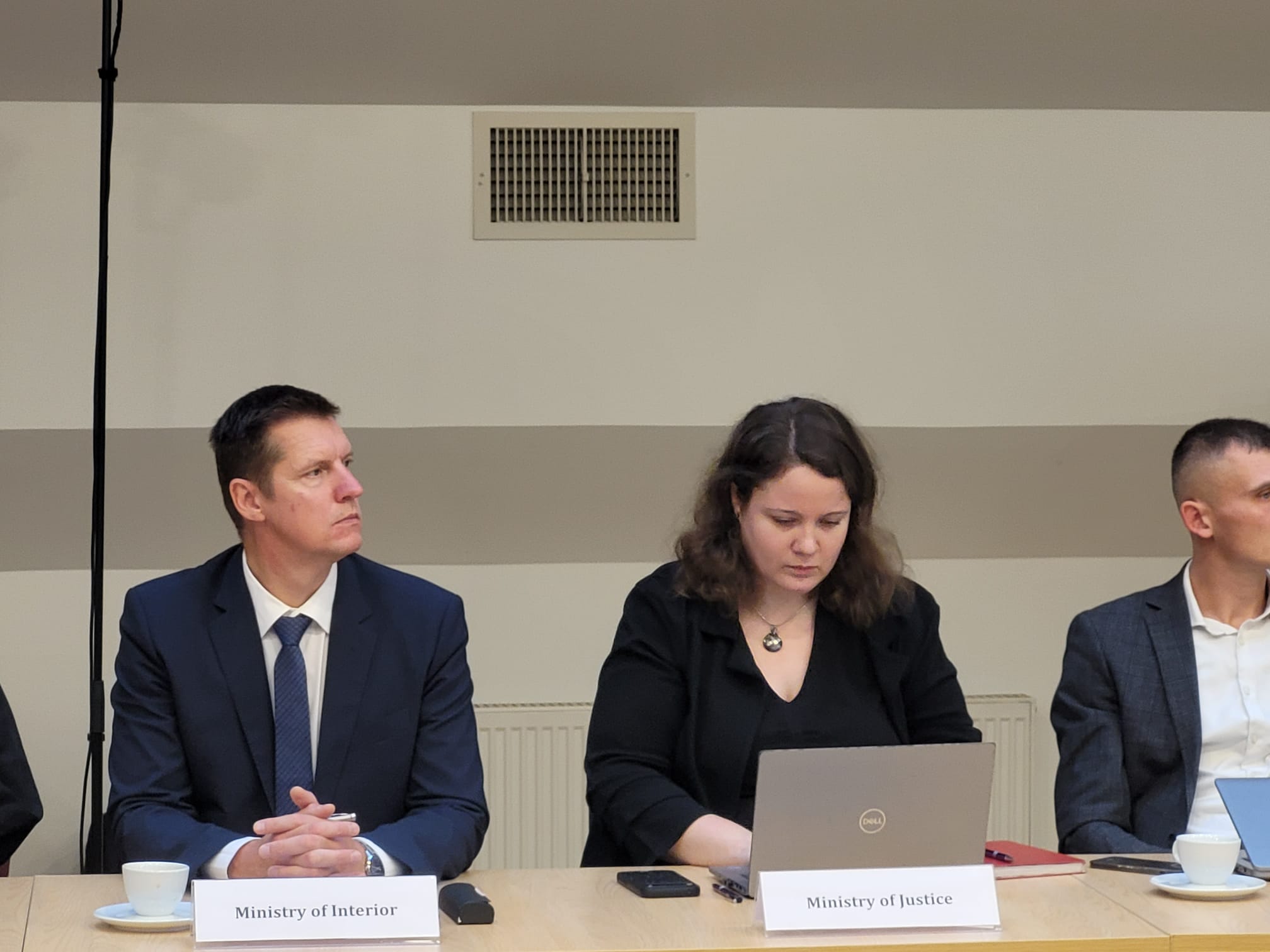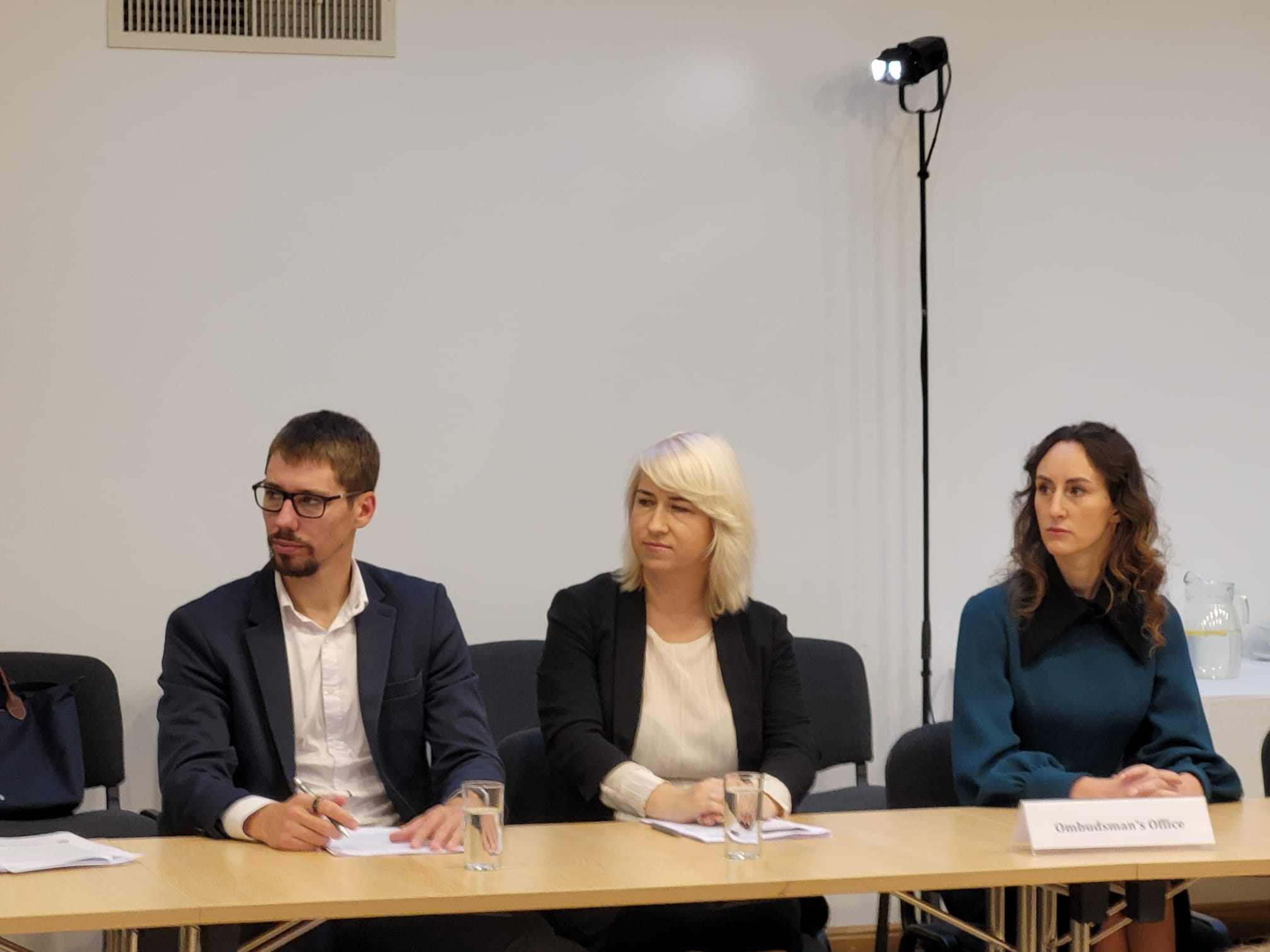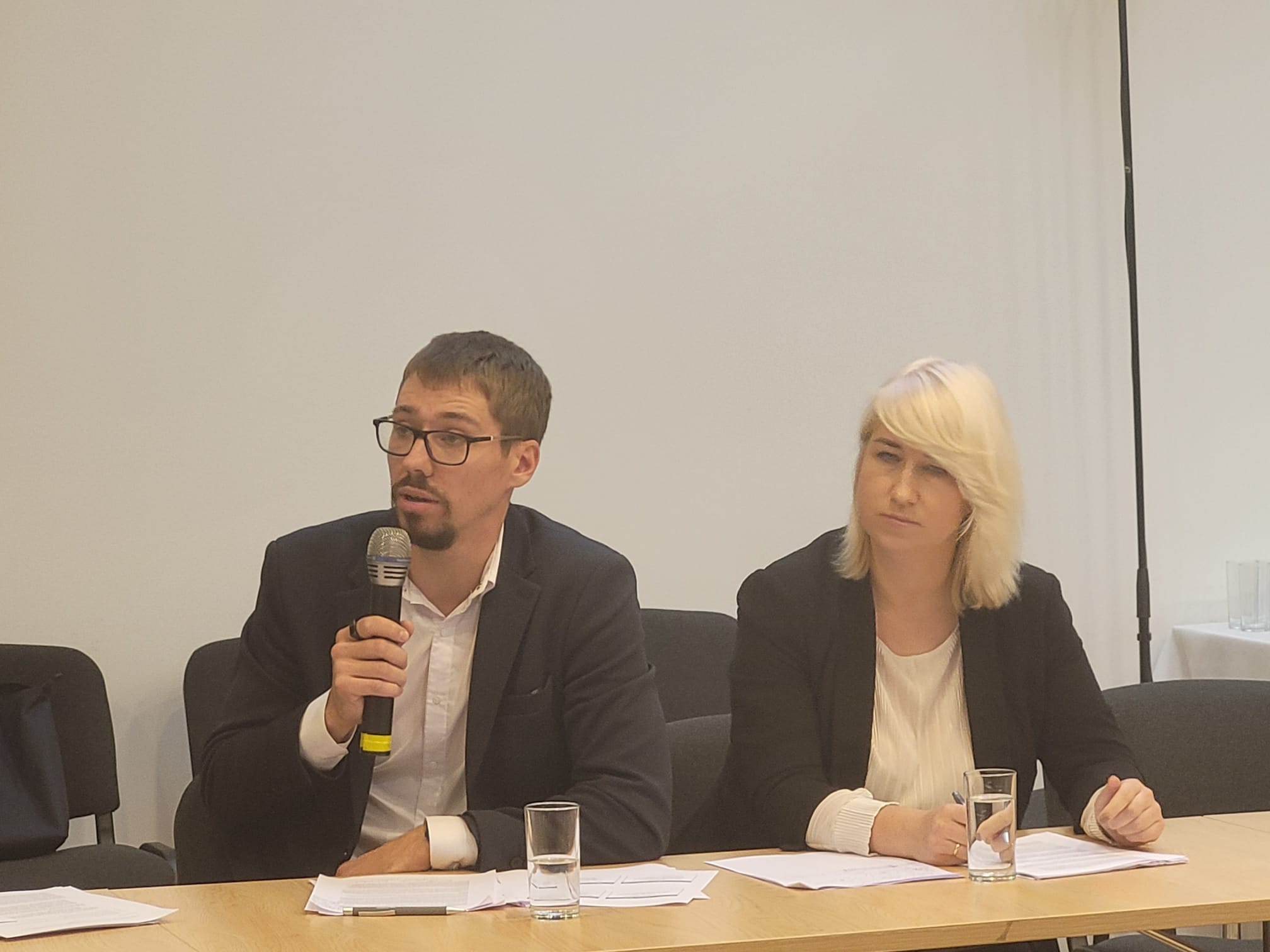Ombudsperson welcomes the delegation of the CoE Department of Execution of ECtHR Judgments
On Thursday 9 October the Ombudsperson Karina Palkova hosted a delegation from the Council of Europe Department for the Execution of Judgments of the European Court of Human Rights, who gave a presentation on the monitoring of the execution of judgments. Representatives of the Ombudsman’s Office, the Ministry of Foreign Affairs, the Ministry of Justice, the Ministry of the Interior, the Supreme Court, Riga Regional Court, Kurzeme District Court, Vidzeme District Court, Riga City Court, the Corruption Prevention and Combating Bureau, the Internal Security Bureau, the State Police, the Tax and Customs Police, the Riga City State Police and the Jūrmala City Municipal Police participated in the meeting.
Representatives of the Council of Europe explained the obligation of states under Article 46 of the European Convention on Human Rights to comply with judgments of the European Court of Human Rights, as well as the fact that the CoE Committee of Ministers monitors the execution of judgments, promoting a constructive dialogue with Member States. The individual measures for victims and the general national measures to prevent repetition of infringements were explained.
Head of Department Pavlo Pushkar stressed: ‘Every judgment of the ECtHR is not a loss, but an opportunity for the State to develop.’
The delegation also presented the application procedure, which allows non-governmental organisations (NGOs), state institutions and other involved parties to provide information on the progress of the enforcement of judgments, as well as highlighted the shared responsibility for the implementation of the Convention at both European and national level, highlighting in particular the role of the parliament, the judiciary and independent institutions. The participants of the meeting actively discussed the experience and challenges of Latvia in relation to the execution of ECtHR judgments. The delegation underlined the importance of transparency and cooperation to ensure effective protection of human rights.
The Ombudsperson Karina Palkova noted: “The delegation visit allows us, as a country, to hear problems and see solutions. This meeting is a great moment to ask complex questions and get answers. Sometimes it is not possible to get answers immediately, just like solutions, but it encourages thinking and working, constantly learning and improving.”
The representatives of Ombudsman’s Office pointed out that issues related to the right to the inviolability of liberty guaranteed in Article 5 of the European Convention on Human Rights, restrictions on the rights of the defence in the availability of materials justifying detention, as well as the practice of applying detention measure have been within the attention of the Office. The Ombudsperson has paid great attention to the issue of the motivations included in judicial decisions regarding the application of detention, so that the person has clear grounds for arrest, as well as judicial decisions are not formal and general. At the same time, the Ombudsperson has actively expressed opinion on the draft amendments to the Criminal Procedure Law concerning the development of the regulatory framework on the detention measure.
Meetings in other institutions
On Wednesday 8 October, a delegation meeting took place at the Ministry of Justice, where participants discussed cases on the Article 3 of the Convention, in particular the fight against ill-treatment (ECtHR cases D. v. Latvia, Malinovsky v. Latvia and beyond). CoE representatives gave an overview of the enforcement process and examples of good practice in ECtHR cases of ill-treatment, as well as what is considered when assessing whether the enforcement process can be concluded and the ways that a country can enforce different ECtHR judgments.
The meeting in the context of Article 8 of the Convention was devoted to parent-child relations, custody and access rights (M.K. v. Latvia, E.K. v. Latvia and more beyond). There were representatives from the Ministry of Foreign Affairs, Ministry of Justice, Ministry of Welfare Senate, Riga Regional Court, Vidzeme District Court, Child Protection Centre, Council of Sworn Bailiffs, Orphan’s and Custody Courts.
The Ombudsman is well aware of the problem of enforcement of positive obligations, such as ensuring the enforcement of rulings, carrying out proceedings without delay, and this is also vigorously reflected in the judgment in E.K. v. Latvia. CoE representatives informed that in this case the individual measures had been effective, the country had taken swift action, and the father-daughter relationship had now been normalised. The Department’s representatives admitted that the child cannot be forced to execute the access decision, but the state authorities must take action, for example, by providing therapy or psychologist’s assistance. The representative of the Ministry of Justice informed that preventive measures are being taken so that disputes between parents can be eliminated or resolved even before the court, as well as there is a plan for child-friendly justice.

